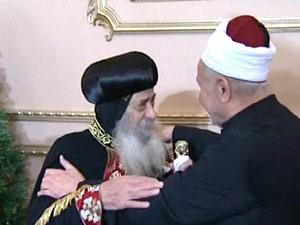 Whenever an opportunity comes up to shed light on a positive incident, I hasten to seize it to inform the reader. Since our daily lives are more often than not dominated by negative incidents, I fear that I often end up conveying a bleak, despairing picture of matters on the ground. This, I fear, might dissuade us from working to find solutions to our problems, a stance which goes absolutely against my belief of the essentiality of striving to understand and overcome the difficulties and injustices we encounter.
Whenever an opportunity comes up to shed light on a positive incident, I hasten to seize it to inform the reader. Since our daily lives are more often than not dominated by negative incidents, I fear that I often end up conveying a bleak, despairing picture of matters on the ground. This, I fear, might dissuade us from working to find solutions to our problems, a stance which goes absolutely against my belief of the essentiality of striving to understand and overcome the difficulties and injustices we encounter.
Not to be missed
Youseef Sidhom
Opinion
00:05
Sunday ,30 May 2010

I received a letter from Watani reader Hany Samir Nasrallah. It felt like a breath of fresh air in a stuffy room, and prompted me to halt the series of articles I have been writing on the grievances we incessantly encounter. Mr Nasrallah wrote:
“I would like to outline a bright event which I had the luck to join, hoping against hope that others would follow in the same footsteps. I live in the Cairo district of Ain Shams but, every once in a while I visit my hometown of Nag Hamad in Sohag, Upper Egypt, where I usually drop by the village priest at his home. The last time I went to see him I met a group of Muslim men, among whom were a number of village imams, who happened to be visiting the priest at the same time. The sight of them made me anticipate a formal gathering with the stilted, ornamented, overly courteous talk we usually witness when priests and sheikhs meet. I was in for a pleasant surprise. The gathering was warm-hearted, the behaviour of those present refreshingly spontaneous, and the talk full of good-natured sense of humour. I discovered that similar gatherings had been held regularly between the members of this group at their different homes. The priest praised the sermons the imams delivered in their mosques and said that they never included the disdain of Christians or Christianity, which so many Copts complain of hearing through mosque microphones. On the contrary, this group of imams invariably advocated love and respect of one’s neighbour whether Muslim or Christian.
“As the visit came to an end on the same unaffected, warm note, the priest parted with his friends praying that the strong ties that bound them would endure. I stood by, deeply moved by what I had just seen. This gathering had taken place on an ordinary day, not to mark any special occasion, and was therefore void of any feigned courtesy. I regretted I had not a camera to capture the pleasant mood. I prayed that God would bless these persons and that many, many others would be like them. This, I thought, is just what Egypt needs if she is to heal from her sectarian wounds.
“I am not recounting a one-of-a-kind incident; I learnt that such incidents are the norm in our village. I write to you about this one hoping that you print it, so that no one thinks that you only print negative incidents and ugly behaviour. Every spot on earth contains the good and the evil; you have printed countless stories on the ‘evil’ hoping to rectify it, likewise you should shed light upon the ‘good’ to reassure your readers.”
I thank Mr Nasrallah for his positive initiative which I am sure will seep into many minds and souls. I am not presenting Mr Nasrallah’s letter to discount the suffering of countless others. My aim is to reassure them and remind that the original kind-heartedness of the Egyptians is still well and alive, lying deep in wait within the soul. Even if this Egyptian trait is sometimes concealed under a dust of discrimination and hate, together—Muslims and Christians—we can regain it and restore it to its original brilliance. When daily grievances cast us into despair, incidents such as the above motivate us to change the realities. I have repeatedly written on problems constantly placed on hold, yet I believe that, likewise, positive incidents should never be obscured or placed on hold.



